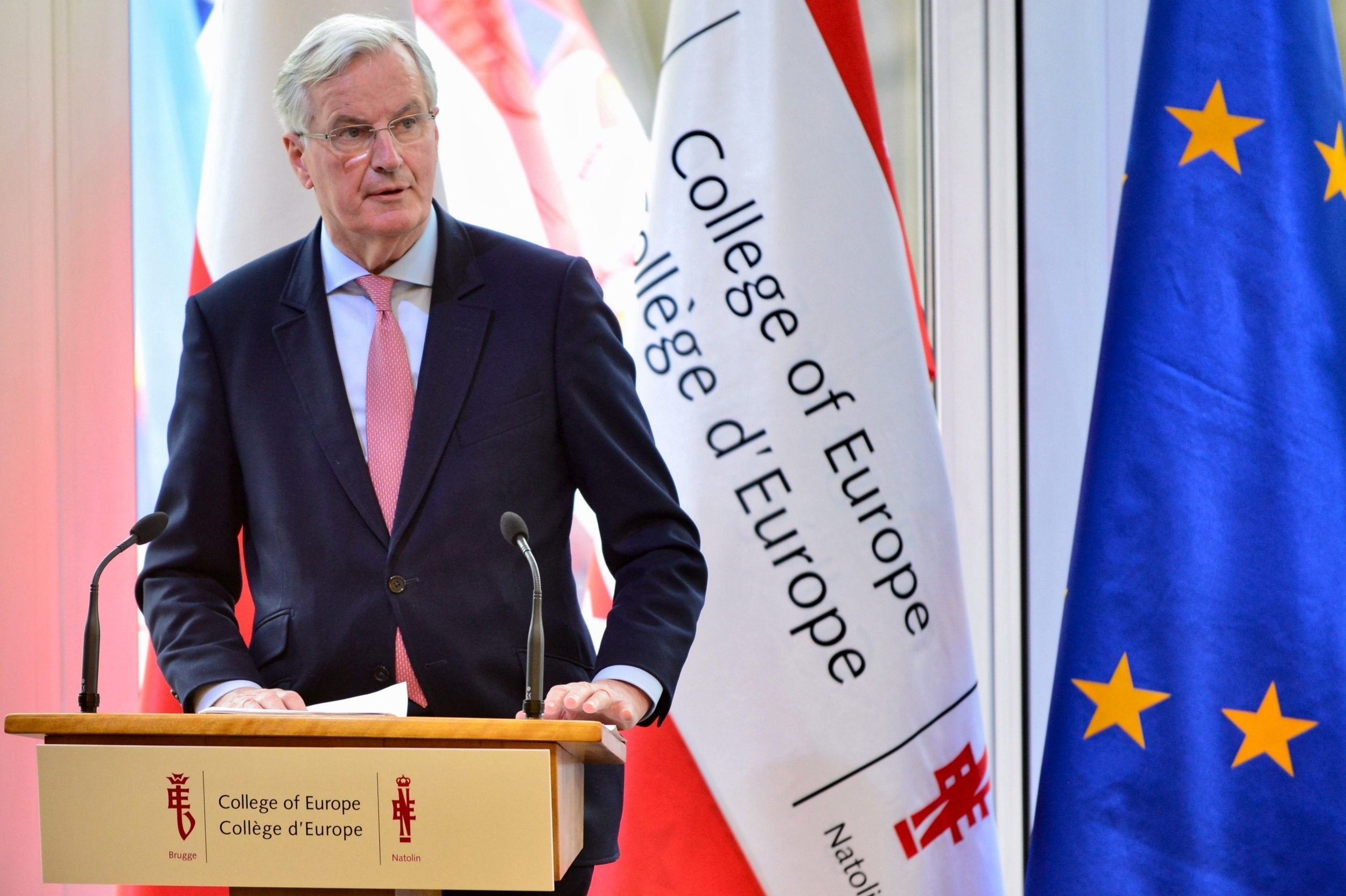How might next week’s Brexit summit of EU leaders play out?
Brexit Explained: If the prime minister wants to go past even 12 April, the current Brexit deadline, she will have to pledge to take part in the European elections

Theresa May is going back to Brussels on Wednesday to meet EU leaders for a special Brexit summit.
Why was the summit called?
After MPs failed to approve the PM’s Brexit deal last week for the third time, European Council president Donald Tusk called the summit “in view” of that decision.
Leaders had previously hoped that the UK might approve the withdrawal agreement and leave in an orderly way as planned.
But with little sign of that happening the 27 will meet to discuss a way forward.
What will be discussed at the summit?
Mostly the question of whether to give Ms May another extension to Article 50 – delaying Brexit again.
The prime minister announced this week she would seek another “short” extension, but on Wednesday MPs voted through a bill that would effectively force her to seek an unspecified “long” extension to avoid a no-deal Brexit.
Will the prime minister get an extension?
EU leaders are definitely open to an extension: the question is what conditions might be attached to it, and whether those would be acceptable to the UK.
It’s impossible to tell the future: last time leaders met to discuss an extension they tore up a draft and came up with their own complicated proposal, which they worked on until late in the night. It’s a good illustration of nothing being certain here.
But we have a few pieces of information we can put together.
Is a short extension possible?
That depends what you mean by a short extension. Commission president Jean-Claude Juncker said on Wednesday that the UK could have until 22 May – rather than 12 April – if Ms May looked like she was about to pass the withdrawal agreement.
This isn’t really an extension by some definitions: the 22 May deadline was already there. But it used to be conditional on MPs passing the withdrawal agreement last week, which they obviously did not do, so it technically no longer exists. It could return.
Mr Juncker said no other short extension past that date would be possible. It’s not up to him, it’s up to EU leaders, but in this case it seems likely that he is speaking for them. If they agree with him, it’ll be a long extension if anything.
What conditions might there be for a long extension then?
Emmanuel Macron, Michel Barnier, and other senior EU officials have said there are three possible scenarios in which a long extension might be granted. The first is if the UK wants to hold a general election. The second is if it wants to hold a referendum.
The third… is more nebulous: it’s a plan for a political process to find a majority for the withdrawal agreement in the Commons.
Ms May seems to be going for this third one: she opened talks with Labour this week. But whether those talks look like they are providing a solution by next Wednesday will be the big question. Whether that process is enough to get another extension is questionable.
What about European parliament elections?
One thing is certain: EU diplomats have been steadfast in saying that if Ms May wants an extension past 22 May the UK will have to hold European parliament elections, which are the next day.
The reasons for this are mostly legal – under applicable treaties, EU states have to hold them. The UK will still be an EU state, and if it doesn’t hold them, every law passed by the EU and the newly elected Commission could be up for legal challenge – say, by a litigious corporation that doesn’t like a new regulation. The EU doesn’t want to take that chance just to cut a favour for the UK.
It’s likely that if the prime minister wants to go past even 12 April, the current deadline, she will have to pledge to take part in the elections. The idea would be that she could cancel them if the UK ended up leaving before then. This 12 April date is the point at which the UK’s Electoral Commission thinks it needs to know whether the elections are taking place in order to hold them.
So in summary…
A short extension probably won’t happen, unless you mean until 22 May, and that will probably need at least a pledge to start organising European parliament elections.
A long extension will need a justification; the talks with Labour might be enough, but if they are not then a general election or referendum could suddenly be on the cards.
Got an unanswered question about Brexit? Send it to editor@independent.co.uk and we’ll do our best to supply an answer in our Brexit Explained series
Join our commenting forum
Join thought-provoking conversations, follow other Independent readers and see their replies
Comments